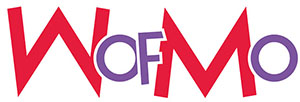Finance (USA)
Finance is a game with a very interesting history. It was one of the incarnations of auction-monopoly that had evolved from The Landlord's game. Dan Layman had learned the game while in college and taken it home with him to Indiana.
He decided it was a marketable game and decided to try to sell it. His attorneys told him the name Monopoly was in the public domain and therefore couldn't be trademarked. So, he chose the name Finance and sold the game to Electronics Laboratories for $200 in 1932.
1932
Electronics Laboratories was out of its element trying to produce a board game so they sold the game to Knapp Electric, another Indianapolis firm. Knapp started producing the game in 1932.
There are several different versions of the game known to exist. The earliest games were in plain small black boxes and came with or without poker chips for money. There are at least 4 different versions of the rules. One mentions poker chips and how to use them, two just mention poker chips, and one makes no mention of chips.
Finance is almost identical to Monopoly. It has a 40 square board, 28 properties, Chance and COMMUNITY CHEST cards, and even the layout is almost the same. It's obvious that both games evolved together and are just two renditions of the same game. John Poland owned three sets; one appeared to be a very early Knapp set, he believed it's an Electronic Laboratories set with a carbon copy set of Electronic Laboratories rules that has the Knapp copyright inserted.
This set is made of thin cardstock, has a very small plain black box, and just doesn't have the feel of a well made game. The second appeared to be a later Knapp set. The box is exactly the same size as the rules and has the Finance logo in gold on top. This set is made of much heavier cardstock. Each denomination of money is a different colour.
The third appears to be one the last sets made. It is housed in a larger black box with the Finance logo on it. It is also made of very heavy cardstock, and the rules mention both Electronic Laboratories and Knapp. Interestingly, this is the set that has rules that mention poker chips, but none are to be found. The money in this set is all the same colour stock.
Here is a comparison of a Knapp Finance board and a Monopoly board. The story goes that Ruth Hoskins was taught auction-monopoly (Finance) by Dan Layman and took the game with her when she moved to Atlantic City. She and her friends played the game and changed the names of the streets to local Atlantic City streets. One theory has it that the spaces were named after streets the players lived on, and in time a couple were changed: South Carolina to North Carolina and Arctic to Mediterranean.
Another theory states that on one cold evening Arctic was changed to the warmer Mediterranean. This is the game that was taught to Charles Todd and subsequently to Charles Darrow. The pictures show the Finance board similar to what Hoskins learned on (similar because she learned before the game was published) and the game she and her friends came up with that was eventually published by Darrow. It's obvious that Monopoly was derived from Finance much as Finance was derived from unpublished games before.
1935
In 1935 Parker Brothers bought Finance from Knapp for $10,000 and decided to produce the game themselves. The first thing PB did was change the game almost completely to make it less like Monopoly.
Next they created the Finance Game Company (FGC) to market it (FGC was created so Parker Brothers could avoid problems with aquiring the Monopoly patent as Finance predated Darrow's copyright).
In 1936 further changes were made to the game and PB then put their name on it (Finance Game Company was never heard from again).
During 1935 Parker Brothers was working on a replacement for Monopoly in case the patent and the deal with Darrow fell through. This game was an almost exact copy of Monopoly with the names changed and Darrow's art removed. The game had a very limited run and was called Fortune. The patent was granted and the deal with Darrow worked out so Fortune became unnecessary.
Parker Brothers wanted to protect the name Fortune so after one version of Finance with Parker Brothers name on it was produced the name was changed to Finance and Fortune. Starting in 1958 the name was changed back to Finance as a new game was going to be introduced using the name Fortune (a game using marbles unrelated to Monopoly).
Several versions (box art) were available through the years and are pictured here. The game seems to have died in the 60s as no versions after the 58/62 box were made (I think that if the game survived into the 70s new box art would have been used -- the last cover looks like it would have been dated in the 60s). If anyone knows of versions not pictured here please let me know.






















